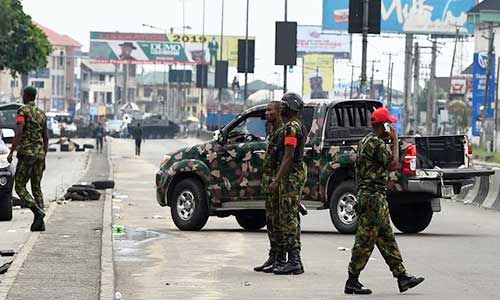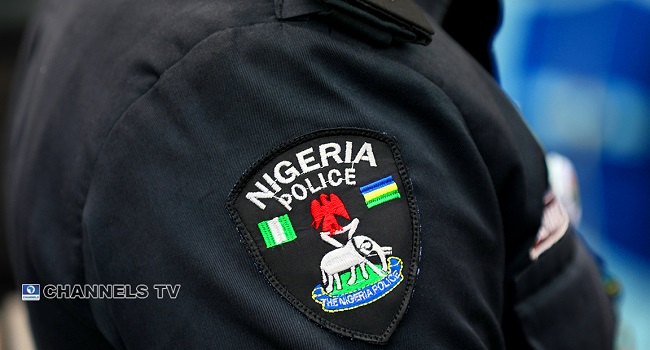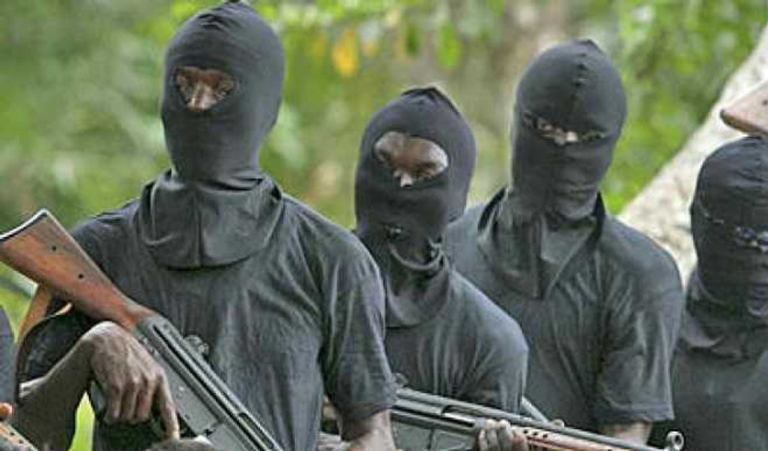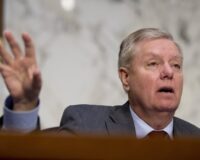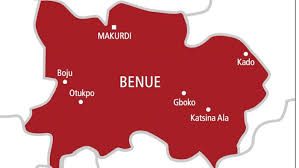By Felix Oladeji
In the last two decades, periodic elections have become the norm rather than an exception in West Africa – a region previously adjudged as the most coup-prone in the world. There has been notable progress with heads of states being elected, incumbents unseated, and alternations of power.
Despite these positives, the enjoyment of dividends of democracy in the forms of public goods and services and rights continue to elude many. Instead, corruption and insecurity remain rife with scant respect for constitutionalism and the rule of law. In fact, some of these countries could be described as deliberative authoritarian states who use elections as a means of legitimizing themselves in office. The August 2020 military takeover in Mali brought to the fore the fragility of West African democracies.
Since that coup d’état in Mali, there has been an uptick in democratic backsliding in the region with coups in Guinea and Burkina Faso, a military-led succession in Chad, and an aborted coup in Guinea Bissau. This instability has been driven mainly by the leaders’ inability to govern effectively. When Alpha Condé became Guinea’s first democratically elected leader in 2010, his victory was widely heralded as the start of a new political era. However, by 2020, Condé became increasingly unpopular, and his decision to push through a constitutional referendum that allowed him to extend his rule to an unconstitutional third term did not reflect the people’s will. According to Afrobarometer, more than eight out of 10 Guineans support a two-term limit on presidential mandates. Condé’s decision, along with economic missteps, set the stage for the military putsch.
Yellow Page mobile
The inability to effectively deal with prevailing insecurity is another regional challenge. In Mali and Burkina Faso, this created an increasing lack of trust in democracy as an effective system of government. In the months leading up to the coups in both countries, both governments had lost control of large swathes of territory to insurgents and jihadists. The state was no longer able to protect its citizens. This partly explains why citizens were seen on the street celebrating the ouster of the government in both countries.
Coups in Mali, Burkina Faso and Guinea have been orchestrated by middle-aged officers of the elite or Special Forces trained to protect the regime and not national security. Assimi Goita, 39, Mamady Doumbouya, 42, and Paul Henri Damiba, 41, all led coups in Mali, Guinea and Burkina Faso, respectively. These actors benefited from the US and French government training. This time around, the coup leaders are innovating and, importantly, learning from one another. Across the board, they are consulting with citizens to present a veneer of popular participation. Furthermore, each has an elongated transition agenda – 30 months for Burkina, between 9 -60 months for Mali, and unspecified for Guinea. This emphasizes the need for state-building over elections.
Regional geopolitics is also shifting. The importance of France, the United States, and other European governments has dwindled in the region. The inability of the French military, G5 Sahel or Operation Takuba, to bring about improvements in the security situation in the Sahel, driven in part by disinformation campaigns, has delegitimized western powers. Instead, Russia, China, Turkey, and other Gulf countries wield more influence as the go-to partners. These are states who support non-interference in the internal affairs of the country and whom African leaders believe offer them more respect. But importantly, they give arms, drive development and give unconditional aid.
At the regional level, ECOWAS is fast losing its reputation as a credible actor, and the commission’s legitimacy is increasingly in question. When Alpha Condé, Alassane Ouattara and Gnassingbe Eyadema committed constitutional coup d’états in Guinea, Côte d’Ivoire and Togo respectively, ECOWAS was notably silent. The ECOWAS response to coup d’état has been to slam sanctions on the country, including suspending them from the community. These sanctions are always ineffective save for the recent sanctions imposed on Mali, which included the suspension of non-essential financial transactions, closure of land and air borders, and the freezing of state assets, amongst others. This translates to adding economic to political sanctions. The imposition led to demonstrations supporting the Goita Junta in Mali and against ECOWAS. These sanctions are onerous and have implications on the economy of neighbours such as Senegal and help cement the relationship with authoritarian states such as Mauritania.
In 2021, and the first three months of 2022, West Africa saw an increase in civilian victims of armed violence, a continuous geographic extension of areas of insecurity, a complexification of the insecurity actors, and a growing connection between this insecurity and internal political instability.
The coup d’états in Mali – the first in August 2020, followed in May 2021 which was presented as a correction or “rectification” of the first coup – allowed Colonel Assimi Goïta to take full control of the transition. What that looks like remains unclear. But it is highly unlikely that a referendum on a new constitution or local, legislative and presidential elections will be organised by the end of 2022, or even before mid-2023, despite pressure and economic sanctions imposed by Economic community of West African States (ECOWAS) to do so.
In Burkina Faso, the coup which toppled President Roch-Marc Kaboré in January was no surprise given prevailing security and political challenges. Large swathes of territory were occupied by armed terrorist groups and Kaboré’s government appeared unable to regain control or halt the continuous flow of displaced persons which reached 1.5 million people by the end of 2021. In Guinea, a tense political situation driven by, now deposed, former president Alpha Condé’s obsession with keeping power by changing the constitution and securing a third-term created popular discontent and the conditions for a military coup, led by Colonel Mamady Doumbouya, in September 2021.
With three coups to deal with, ECOWAS has been holding an unprecedented series of meetings of its highest authority: the heads of states and government. In each instance, ECOWAS has condemned the coups. In Mali it imposed harsh sanctions after the ‘interim’ authorities in Bamako proposed a five-year transition period. ECOWAS viewed this as showing a lack of consideration for its diplomatic efforts since the 2020 coup, and even before. When President Ibrahim Keita faced popular demonstrations in mid-2020, the regional body appointed former Nigerian President Goodluck Jonathan as its mediator. But ECOWAS has a credibility challenge.
Ultimately, its decisions and implementation power depend on member states’ political leadership; their interests; and capacity to enforce. The reality is that some of its heads of states can hardly be considered as model democratic actors and therefore lack moral authority to push for the restoration of democratic government. In 2020, Alpha Condé was not the only president who chose to change the fundamental law of his country in order to justify a third mandate which was legally disputed. President Alassane Ouattara did the same in Cote d’Ivoire before his re- election for “the first mandate of a new Republic”.
Another challenge for the regional body has been the weakening of its ‘superpower’ state – Nigeria in the last decade or more. Nigeria accounts for 70% of ECOWAS’s Gross Domestic Product and more than half of its population. The political, economic and military capacities of Nigeria were key factors in ensuring ECOWAS legitimacy and influence in dealing with the complex and brutal civil wars and other armed conflicts in the Mano River region in the 1990s and early 2000s.
But the country is now mired in its own internal security crises and governance failures. If ECOWAS’s influence has declined dramatically over the past 15 years, it is primarily because Nigeria’s regional clout has weakened, and no other country or leader showed a strong interest in deepening regional integration in the community.
Moreover, In the Gambia in 2016/2017, ECOWAS successfully ended the post-electoral crisis by forcing authoritarian President Yahya Jammeh to leave power, and the country, through a combination of diplomatic and military pressure. But this result, consistent with the defence of democracy and the respect of the electoral choice of Gambian citizens, was also possible because Jammeh did not have many friends within the regional community and had a particularly bad relationship with Senegal, whose security in the southern region of Casamance depends on cooperation with the Gambia and Guinea- Bissau. ECOWAS’ successful intervention in the Gambia was to a large extent a Senegal-led diplomatic and military success.
For ECOWAS to regain its relevance and address popular perceptions that it is weak, especially among those experiencing insecurity, violence and political instability, it needs to generate committed leadership among regional leaders such as Nigeria, Ghana, Cote d’Ivoire and Senegal. This can help create a body capable of ensuring stronger political and economic integration that can in turn, more effectively prevent crises and support the resolution of conflicts.
Hence, it is not realistic to expect ECOWAS to be a strong regional organisation and a powerful gatekeeper of democracy while most of its member states, including the most influential ones, are failing to advance their internal democracy. The countries of the region need to be encouraged to continue to build state structures that are more accountable and provide economically for residents. And ECOWAS can do more to support these crucial political and institutional changes in member countries.
But it is also up to the citizens and activists of West African states to put pressure on the political authorities to do better when it comes to adhering to democracy and good governance principles. A regional community is not a substitute for collective actions at the national level, although it can reinforce them and transform good examples into regional standards and norms. Only with pressure from below will the “ECOWAS of peoples” commitment, be realised.
Oladeji writes from Lagos.

